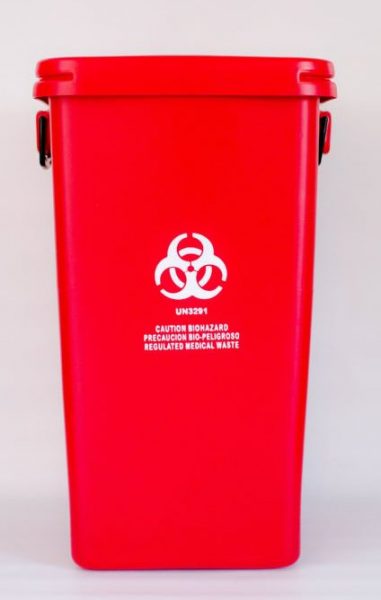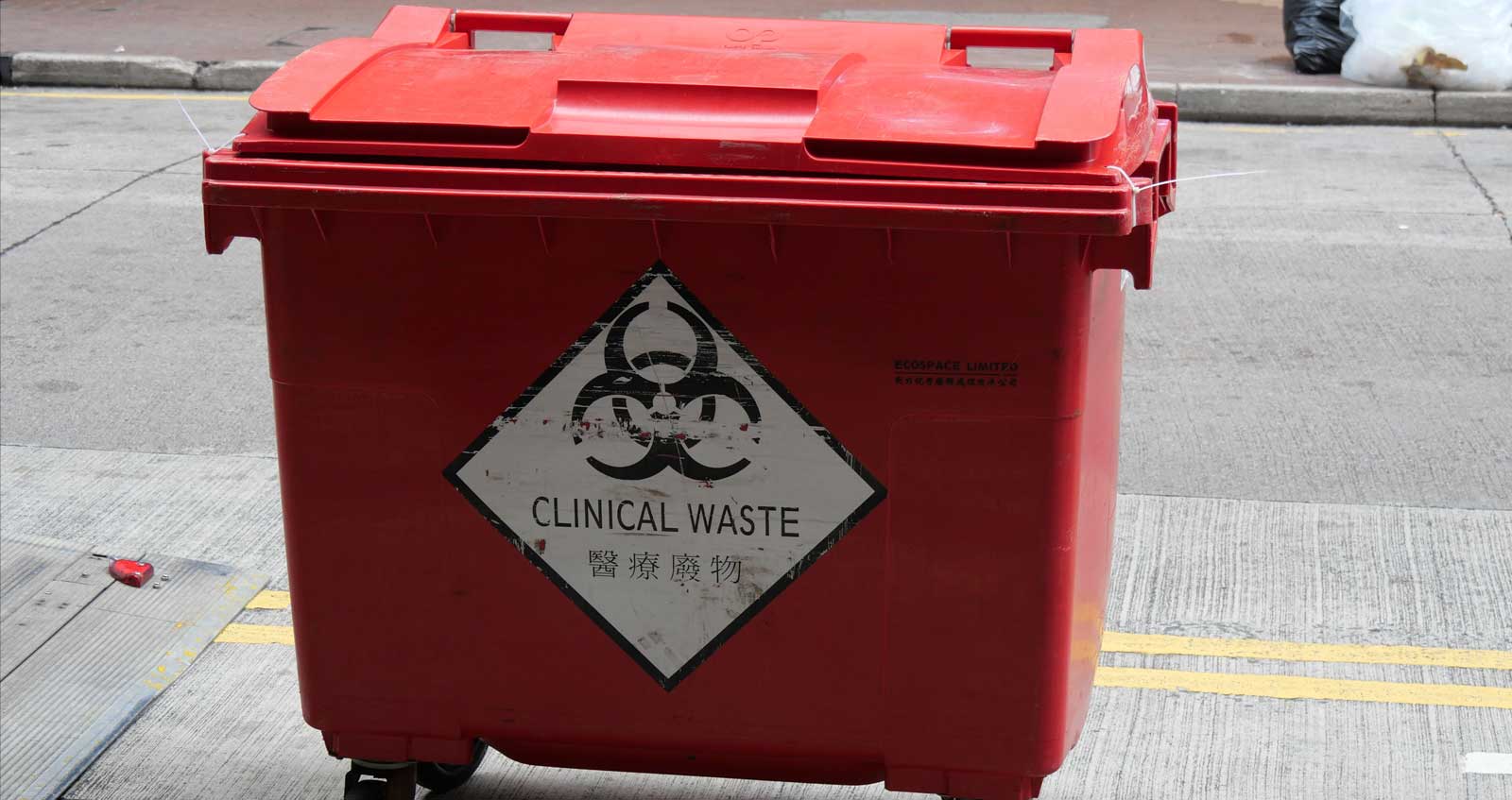Area Treatment: Smooth and Reliable Medical Waste Removal Near Me
Area Treatment: Smooth and Reliable Medical Waste Removal Near Me
Blog Article
Keep Ahead of Laws: Professional Suggestions on Medical Waste Disposal
In a world where the healthcare sector is frequently evolving, it is crucial for medical facilities to remain ahead of policies when it comes to the appropriate disposal of clinical waste. From understanding the various classifications of medical waste to carrying out the ideal collection and partition techniques, this discussion will give beneficial understandings and actionable pointers to help centers stay in advance of guidelines in the ever-changing landscape of clinical waste disposal.
Understanding Clinical Waste Categories
Recognizing medical waste groups is important for appropriate disposal and administration in healthcare centers. Medical waste refers to any type of waste generated by medical care tasks that may position a threat to public health and wellness or the environment. It is vital to categorize clinical waste accurately to guarantee its safe handling, disposal, transportation, and therapy.
There are a number of categories of medical waste that health care facilities require to be accustomed to. The most usual categories include transmittable waste, pathological waste, sharps waste, pharmaceutical waste, and chemical waste. Each category has particular standards and laws for its proper management and disposal.
Pathological waste refers to human cells, body organs, or body components that call for unique handling and disposal. Drug waste comprises run out, extra, or infected medications that need cautious handling and disposal.
Remaining Up-To-Date With Regulatory Modifications
Staying present with regulative changes is crucial for health care facilities to guarantee conformity and correct management of medical garbage disposal. medical waste removal. With regulations frequently progressing, it is necessary for health care facilities to stay current to prevent charges, fines, and possible injury to the environment and public wellness
To stay in advance of regulative changes, medical care facilities should establish a system for monitoring and tracking updates. This can be done by subscribing to regulatory e-newsletters, going to workshops and meetings, and actively taking part in industry associations. Furthermore, facilities need to mark a personnel participant or team in charge of staying notified and disseminating info to pertinent stakeholders.
Regular communication with governing companies is additionally crucial. Healthcare facilities need to establish relationships with regional, state, and government agencies to guarantee they know any type of modifications in regulations that may influence their waste monitoring methods. This can be done via regular meetings, engagement in public comment periods, and proactive involvement with governing firms.
Additionally, healthcare centers must consider partnering with waste monitoring business that specialize in clinical waste disposal (medical waste disposal services with WasteX). These firms are frequently fluent in the newest guidelines and can give guidance and support to make sure conformity
Applying Correct Collection and Partition Approaches
To efficiently handle medical garbage disposal, healthcare centers have to establish proper collection and segregation methods based on regulative standards. Applying these approaches makes certain the secure handling and disposal of possibly unsafe products, shields the environment, and minimizes the threat of injuries and infections to health care workers and the basic public.
Appropriate collection and segregation methods involve using marked containers and classifying systems. Medical care centers must supply clearly identified containers for different types of clinical waste, such as sharps, transmittable waste, pharmaceutical waste, and non-hazardous waste. These containers must be color-coded and clearly marked to stay clear of confusion and advertise simple identification.
Additionally, healthcare centers ought to educate their personnel on the appropriate treatments for gathering and setting apart medical waste. This consists of educating them on the various sorts of waste, the proper containers to utilize, and the significance of following standards and laws. Normal training sessions and correspondence course ought to be carried out to guarantee that team participants continue to be updated on best techniques.
Moreover, healthcare centers ought to establish a system for normal collection and disposal of medical waste. This might include partnering with licensed waste administration business that focus on medical waste disposal. These firms will ensure that the gathered waste is transferred and dealt with in conformity with regulative needs.
Selecting the Right Disposal Approaches

Incineration is one of one of the most effective and common techniques for taking care of certain types of medical waste, such as pathological waste and sharps. It entails the controlled combustion of waste at high temperatures, minimizing it to ash. Nonetheless, incineration can launch unsafe pollutants into the air and add to air pollution.

Chemical treatment includes the use of chemicals to sanitize and counteract the waste. Microwave treatment uses microwave energy to warm and sanitize the waste.
Making Sure Compliance Via Documentation and Training
After thoroughly thinking about the suitable disposal techniques for medical waste, health care facilities need to make certain conformity with laws and decrease ecological influence by applying reliable documents and training treatments. This action is vital in keeping a sustainable and secure environment for both medical care workers and the public.

Medical care employees who deal with clinical waste needs to get suitable training on waste segregation, managing, you can find out more and disposal procedures. By supplying thorough training, medical care facilities can encourage their personnel to make enlightened choices and lessen the danger of incorrect waste disposal.
Final Thought
Finally, staying ahead of policies in clinical waste disposal is important for medical care facilities. medical waste removal services. Comprehending the different categories of medical waste, remaining upgraded with regulative changes, implementing proper collection and partition techniques, selecting the suitable disposal methods, and ensuring conformity with paperwork and training are all important steps. By following these standards, health care organizations can properly get rid of and handle of medical waste in a secure and accountable way
From understanding the different categories of clinical waste to executing the right collection and partition methods, this conversation will give actionable tips and useful insights to assist facilities remain ahead of guidelines in the ever-changing landscape of medical waste disposal. - medical waste disposal services with WasteX
The most usual groups include contagious waste, pathological waste, sharps waste, pharmaceutical waste, and chemical waste. Medical care centers should offer clearly identified containers for various kinds of clinical waste, such as sharps, transmittable waste, pharmaceutical waste, and non-hazardous waste. Medical care centers should establish an extensive system to tape-record and track all elements of medical waste disposal, including types of waste produced, quantities, and disposal methods utilized. Health care workers who deal with clinical waste must get proper training on waste segregation, managing, and disposal procedures.
Report this page